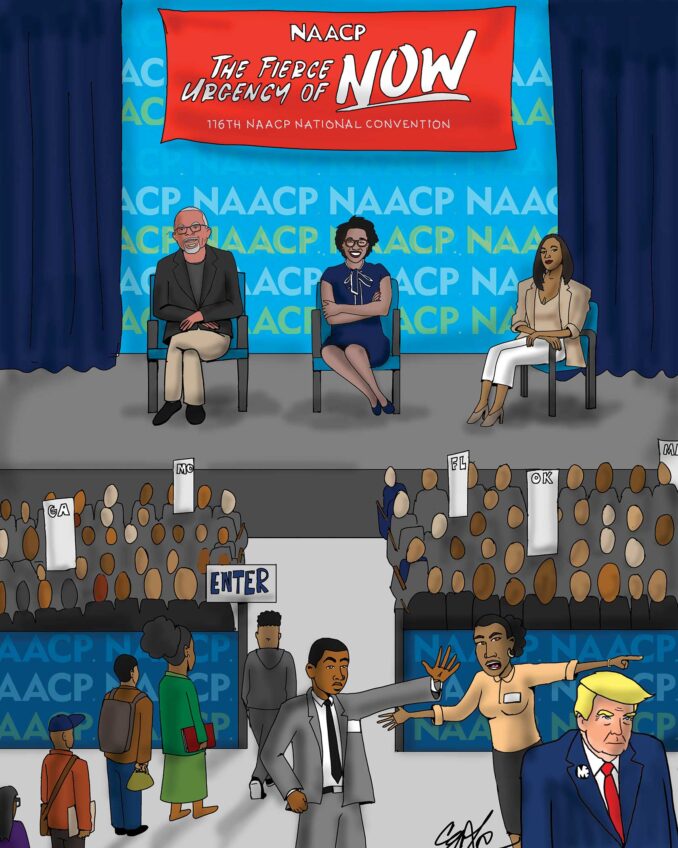
The burden of higher education
| “After we pay down our student loans, there’s nothing left for our mortgage payment.” |
The goal of public education is not to create a class of philosopher kings. In a vibrant democracy, a reasonable level of literacy is essential for citizens to remain well informed. Equally important is the preparation of citizens for the world of work.
However, in a manufacturing-oriented economy it is not necessary for many citizens to earn Ph.Ds. In 1950, 30 percent of Americans worked in factory jobs. Qualifications for most manufacturing jobs did not require a college education. Back then only 5 percent of Americans 25 years of age or older had earned a bachelor’s degree or more.
A free public high school education was enough, in 1950, to prepare the average citizen for meaningful employment. But a higher level of education became required as factory jobs were shipped overseas. By 2010 only 8.8 percent of Americans worked in the nation’s factories.
The nature of the American economy has changed. Most jobs are now in communications, services and technology. These jobs usually require a higher level of education than a high school diploma. By 2010, a bachelor’s degree or more had been earned by 28.2 percent of Americans 25 and older. This is an almost 600 percent increase in the level of higher education in only 60 years.
From 1950 to 1980, during what might be called the golden age of U.S. manufacturing, the productivity of labor increased and salaries rose with the help of trade unions. Factory workers were able to enjoy a middle class standard of living, and they did not have to bear the cost of higher education to qualify for their jobs.
That has changed now. A college degree is usually required for employment at middle-class salary levels. Americans themselves must pay for a college education at costs that continue to rise. According to the U.S. Department of Education, the average undergraduate cost of tuition, room and board in 1980-81 was $2,550 at a public four year institution, and $5,594 at an independent college. By 2009-10 those costs had grown to $15,014 at a public school and $32,790 at a private college. These costs are 590 percent greater.
Many students cannot afford such high costs so they go into debt to acquire a college degree. Student loans now exceed the total amount of outstanding credit card debt and are fast approaching $1 trillion. As a consequence, many college graduates are forced to accept jobs whose only virtue is that they enable them to pay back their college debt faster.
High unemployment following the recent recession and the sluggish recovery has created a crisis for young Americans with substantial college debt. President Obama understands that it is unfair to burden the young so severely, so he has approved measures to lighten the load. As might be expected, conservatives have complained that Obama has created another entitlement to be paid for by American taxpayers.
There is an unresolved disparity in American society. Some 60 years ago free public education enabled citizens to attain middle class status. Now it takes the assumption of staggering debt to enjoy a similar lifestyle, and for many, debt repayment consumes too much of their income. That is why social critics complain about the decline of the middle class.
A strong America needs a highly educated citizenry to compete in this age of technology, and we need a social system that enables everyone to benefit from their citizenship.






